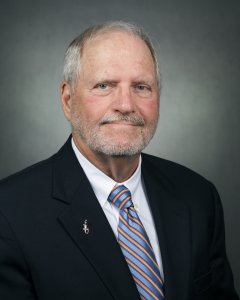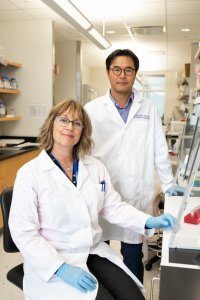April 2020 FloridAgriculture e-Newsletter

By Jack Payne
[email protected]
@JackPayneIFAS
The Coronavirus doesn’t stop the need to feed. In fact, the run on supermarkets as I wrote this in mid-March demonstrates how demand for food spikes during a crisis.
This is a moment (maybe a months-long “moment”) for agriculture and agricultural science to shine. We have a wealth of experience as few other sectors do in navigating a crisis — natural disasters, climate variability, market fluctuations, freezes, diseases, pests and other threats.
Just as the food supply you deliver is not interrupted by the Coronavirus, neither is the science you rely upon to inform your decisions.
The women and men of UF/IFAS showed extraordinary effort in taking early action to keep the Coronavirus from sidelining science. Their beat-the-clock hustle ensured the continuity of agricultural science before restrictions on travel, public gatherings or even showing up at the office could threaten to shut down their work to sustain Florida agriculture.

One of the most extraordinary responses was the darn-near-instant transformation of teaching. Our instructors, administration and instructional technology professionals took classes attended by 6,000 students in the College of Agricultural and Life Sciences and put them all completely online in days. This keeps students on track to graduate on time and prevents gaps in the education they’ll need to be productive 21st century citizens.
These are 6,000 potential future employees. At the very least, they’re 6,000 present and future customers who will be ag ambassadors who can tell friends, family, co-workers, fellow worshippers and strangers where their food comes from.
Lauren Diepenbrock feared that as the movement of people seemingly became more restricted by the hour that her research team would be locked out of an experimental grove by the emergency. So she summoned them to report to the Citrus Research and Education Center by 7 a.m. and got 600 Valencia trees planted in a single day.
She said, “This is work we’ve promised the federal government we’d do to help our growers.” Citrus growers were in crisis long before the Coronavirus, so her research on HLB is too important to face delays caused by Coronavirus. Even a public health emergency didn’t shake her commitment to her pledge to the federal government – or to you.
Vanessa Campoverde showed the same hustle in Extension. When infections began to impact air travel, she jumped in the car and drove six hours from Miami to Live Oak for an important training she needed to help Miami-area producers. She also rushed to squeeze in Spanish-language training for workers who needed to keep their pesticide licenses from expiring during a potential shutdown.
Like so many other things right now, the way we’re delivering agricultural science may look and feel different. Some things don’t change at all, like our commitment to you. We’re still working for you so you can work to feed an anxious world.
Jack Payne is the University of Florida’s senior vice president for agriculture and natural resources and leader of the Institute of Food and Agricultural Sciences.
